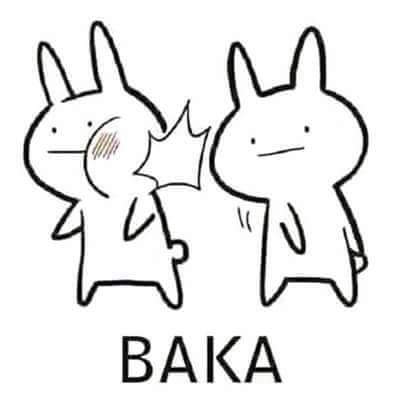Ranter
Join devRant
Do all the things like
++ or -- rants, post your own rants, comment on others' rants and build your customized dev avatar
Sign Up
Pipeless API

From the creators of devRant, Pipeless lets you power real-time personalized recommendations and activity feeds using a simple API
Learn More
Comments
-
> 'there is hard, harder and hardest,
but if it goes in the other direction, it’s suddenly "less hard" and "least hard".'.
Which is why they expect you to use antonyms for those.
Hard -> Easy -> Easier -> Easiest.
Retarded -> Smart -> Smarter -> Smartest.
/* Ha... Pot twist... Nah, !really. */ -
Yeah fair, but not all adjectives have opposites.
Sick, broken, horny, green, diluted, … -
 D-4got10-01269221h@Lensflare Probably true.
D-4got10-01269221h@Lensflare Probably true.
But for those:
- Sick - healthy,
- broken - whole,
- horny - frigid,
- green - ?,
- diluted - condensed / concentrated.
...yeah, for the color I have nothing. It's either more or less of that color. -
 Lensflare2166120h@D-4got10-01 no, those aren’t real opposites.
Lensflare2166120h@D-4got10-01 no, those aren’t real opposites.
The opposite of sick would be "not sick".
You can say that you didn’t went to work because you were the sickest that you have been in your entire life. But if you want to express the opposite, that you were the least sick in your life, it‘s not the same as the healthiest in your life. Completely different meaning.
Same goes for the other examples.
Maybe with diluted you are right. -
 D-4got10-01269220h@Lensflare Well, I tried w/ a counterargument. How good it was... up to the reader to decide.
D-4got10-01269220h@Lensflare Well, I tried w/ a counterargument. How good it was... up to the reader to decide.
Probably !good as a 'catch-all', but for most cases, should be valid.
Edit:
Hmm... w/ sick you could always go w/ 'very' or 'little' as modifiers. -
 Lensflare2166120h@D-4got10-01 yeah but "very" and "little" is just the same as "more" and "less". Generic fallbacks for a missing proper form.
Lensflare2166120h@D-4got10-01 yeah but "very" and "little" is just the same as "more" and "less". Generic fallbacks for a missing proper form.
And my whole point was to express the wondering about why the proper form is missing from the other direction, consistently across all human languages (according to chatgpt).
Related Rants

 When my boss said that one language is better than others because it's being used by big company
When my boss said that one language is better than others because it's being used by big company From Facebook...
From Facebook... Found this somewhere, not only for concept, i just do it everytime 😂
Found this somewhere, not only for concept, i just do it everytime 😂
Degrees of comparison are weird as they go in the "more" direction for almost every human language but not in the "less" direction.
For instance, there is hard, harder and hardest,
but if it goes in the other direction, it’s suddenly "less hard" and "least hard".
It’s even weirder for languages that don‘t fall back to the "more" form for long adjectives, like English does:
More retarded, most retarded.
Which is again symmetrical to the other direction with "less".
Just some shower thoughts…
random
degrees of comparison
most retarded
language